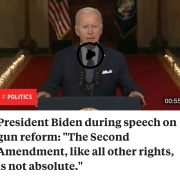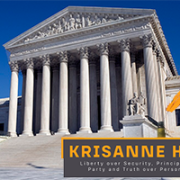Why We Must Celebrate July 2nd– America’s True Independence Day
by KrisAnne Hall, JD
Most Americans mark July 4th as our nation’s birthday. But here’s a truth you likely weren’t taught in school:
-
America’s actual Independence Day is July 2nd – and the founders knew it.
It wasn’t the Declaration of Independence that created our freedom. It was our freedom that gave rise to the Declaration. And that freedom was made official on July 2, 1776, with the ratification of the Lee Resolution.
-
The Forgotten Resolution That Created a Nation
On June 7, 1776, Virginia delegate Richard Henry Lee introduced a resolution to the Continental Congress. It was a bold, three-part legislative act declaring that the colonies were no longer subject to the British Crown:
“That these United Colonies are, and of right ought to be, free and independent States…”
For nearly a month, this proposal was hotly debated. Then, on July 2, twelve of the thirteen colonies voted to ratify it (New York abstained, pending direction from their constituents). At that moment, the colonies legally became free and independent States.
There was no fireworks show. No flashy parchment. Just a clear legislative act—binding, final, and irrevocable.
Our independence was not a poetic flourish; it was a constitutional reality.
-
The Declaration Was Not the Cause – It Was the Announcement
Two days later, on July 4, the Declaration of Independence was approved, not signed, in order to publish and proclaim what had already happened:
“We… solemnly PUBLISH and DECLARE, That these United Colonies are, and of Right ought to be Free and Independent States…”
It even echoed the exact words of the Lee Resolution.
-
John Adams Knew the Truth
One day after the vote, on July 3, John Adams wrote to his wife, Abigail:
“I am apt to believe that it will be celebrated, by succeeding Generations, as the great anniversary Festival. It ought to be commemorated, as the Day of Deliverance by solemn Acts of Devotion to God Almighty. It ought to be solemnized with Pomp and Parade, with Shews, Games, Sports, Guns, Bells, Bonfires and Illuminations from one End of this Continent to the other from this Time forward forever more.”
Adams didn’t get the date wrong. He got the history right.
The Fourth only became a national holiday in 1870, almost a century later.
-
Why “Independence Day” Matters – Not Just “The Fourth of July”
It’s important that we don’t just call this holiday “the Fourth of July.” That’s just a date—and every country that uses the Roman calendar has a July 4th.
But only one country has our Independence Day.
Only one nation declared to the world that its people were not subjects of a king, but free by the laws of nature and of nature’s God. Only one nation formed a union of sovereign states based on liberty, not bloodlines or tyrants.
When we reduce it to a date, we detach from its meaning.
When we say “Independence Day,” we declare to the world and remind ourselves:
This was the day we chose liberty over submission.
This was the day we became a nation of self-governing people.
This is our deliverance day.
Let’s not forget what we’re really celebrating.
-
Why We Must Celebrate – Now More Than Ever
Today, some argue that we shouldn’t celebrate Independence Day at all. Some claim it’s a racist holiday. Others say we’ve lost too much liberty to celebrate what we no longer possess.
But here are three powerful reasons why we must celebrate—loudly, proudly, and truthfully:
- Because Truth Must Defeat the Lies
America’s founding has been smeared with false claims of racism and oppression. But the facts speak otherwise. The founders knew slavery was a moral stain and worked through compromise to keep the union together long enough to see it destroyed. The idea that America was “built on racism” is historically and intellectually dishonest.
📖 Read the historical truth about slavery and the Constitution
If we abandon this celebration, the lies go unchallenged, and unchallenged lies become accepted truth.
- Because We Must Remember What We’ve Lost
Yes, government overreach is real. Yes, much of the liberty we were gifted has eroded. But if we stop honoring that gift, how will the next generation even know it existed?
We didn’t go to war over tea. We went to war because we were done being ruled. Our founders had the courage to throw off kings. If they did it, we can do it again.
📖 Read the history: “Tyrannized Enough?”
- Because Their Sacrifice Deserves Our Honor
The signers of the Declaration—and the framers of the Lee Resolution—pledged their lives, fortunes, and sacred honor. Many lost everything. Their bravery demands more than apathy. It deserves commemoration.
This holiday isn’t about how we feel about today’s government. It’s about who we were created to be.
-
Even Frederick Douglass Celebrated our Independence!
In 1852, Frederick Douglass, a freed slave and brilliant abolitionist, said this:
“The 4th of July is the first great fact in your nation’s history, the very ring-bolt in the chain of your yet undeveloped destiny…
The principles contained in that instrument are saving principles.
Stand by those principles, be true to them on all occasions, in all places, against all foes, and at whatever cost.”
Let that sink in. A man born into slavery, who fought tirelessly to end it, honored our Independence because he believed in the principles it proclaimed. — So should we.
-
So Today—Celebrate Boldly
The loss of liberty didn’t happen overnight. And we won’t reclaim it overnight either. But we begin by remembering.
We remember that we were once free by law, declared free by the authority of the people.
We remember that our rights come from God, not government.
And we remember that our union was not built by bureaucrats—but by bold men who put everything on the line for Liberty First.
So today, light the bonfires, ring the bells, teach your children, tell the truth, and laugh in the face of tyranny.
Because no other nation on earth has the potential for greatness like These United States of America.
-
Ready to Reclaim What Was Fought For?
If reading this stirred something in you—if you felt that spark of gratitude, that righteous resolve, don’t let it fade when the fireworks end.
Liberty was never meant to be inherited passively. It must be studied, understood, and defended, generation by generation.
That’s why we created the Constitutional Deep Dive series at LibertyFirstSociety.com—to take you step-by-step through the Constitution as it was intended, with the real history, real words of the founders, and real solutions for today.
Whether you’re a student, a parent, a pastor, or just a patriot hungry for truth—this course is for you.
Discover the power you already have as an American.
Learn the truth they never taught you in school.
Reclaim your role in preserving our Republic.
This Independence Day, don’t just celebrate our liberty—train to preserve it.
Visit LibertyFirstSociety.com and start your Constitutional Deep Dive today.
Because if we don’t know what we had, we won’t even recognize when it’s gone.
Happy Independence Day.





 KrisAnneHall.com 2025
KrisAnneHall.com 2025

